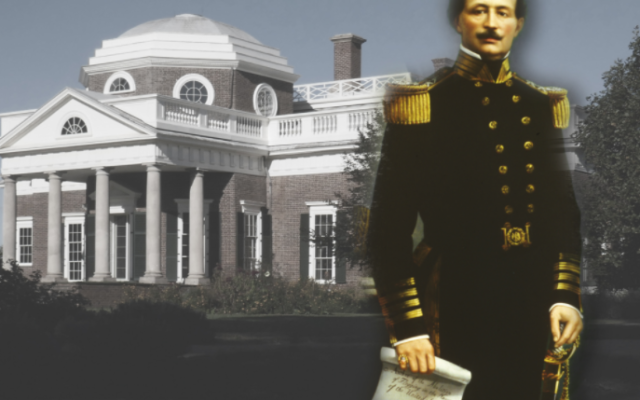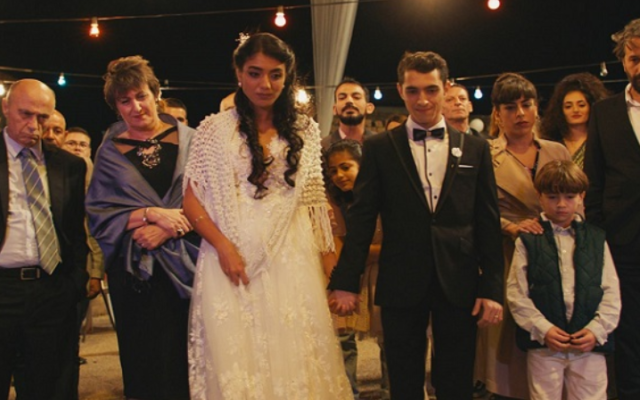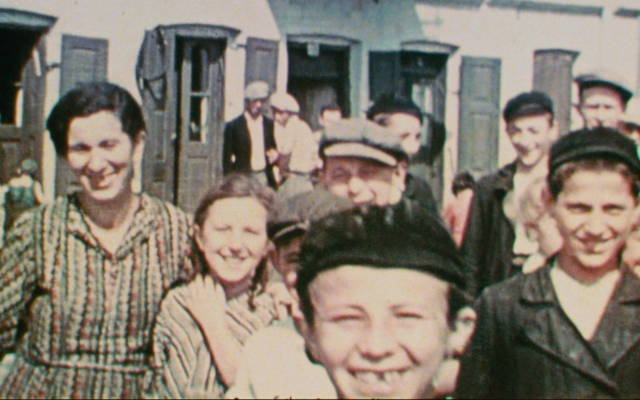AJFF Names 2022 Prize-Winning Films
Winners underscore the strength and compelling nature of the more than 50 films that were selected for the festival.

A depiction of Palestinian life in the West Bank, a short home movie made in Eastern Europe just before the Holocaust and a documentary about the Jewish family who saved Thomas Jefferson’s famed estate from ruin were among the winners of Jury Prizes at the 2022 Atlanta Jewish Film Festival.
“Let It Be Morning,” an Israeli production featuring a cast of Israeli Arab actors and a script by a prominent Israeli Arab writer won for best narrative film. The film follows a prosperous Arab family that is marooned by an IDF roadblock in a Palestinian village after attending a weekend wedding celebration, mixing comedy with serious and sometimes heartbreaking lessons about how the Israeli occupation of the West Bank seeps into every aspect of Palestinian life.
The three-judge panel described the film as having “striking imagery, enormous compassion and an unusual balance of melancholy and humor.” The film, the judges said, “gives us a much needed, palpable sense of what life is like for Palestinian Israelis with compassion and great insight.” “Let It Be Morning” also took home Israel’s top film prize at the Ophir Awards, nabbing Best Director and a half-dozen other honors. It is Israel’s choice to compete for Best Foreign Language Film at this year’s Academy Awards.
The Documentary Jury Prize went to “Three Minutes: A Lengthening,” a frame-by-frame examination of a three-minute strip of home movie footage taken by David Kurtz, a prosperous Jewish émigré who returns to his hometown in Poland in 1938, just prior to its destruction in World War II.

The jury honored the filmmakers, led by director Bianca Stiger, for the way in which they “powerfully employ state-of-the-art technology to bring back to life these people who otherwise would be lost and is a significant contribution to the documenting of the Holocaust.”
The prize for the film that best promotes the AJFF’s mission of building bridges in the community went to “The Levys of Monticello,” a documentary by Steven Pressman, which tells the story of how an American Jewish naval officer bought Thomas Jefferson’s historic Virginia estate in the late 1830s and began the long process of restoring and preserving the historical property for future generations of Americans.
The jury singled out Pressman for using the history of the landmark to examine not just the Jewish aspect of the story, but of the role it played in African American history as well.
“At a moment when racism and anti-Semitism are palpably felt even today,” the jury wrote, “the process of coming to terms with our past resonates powerfully.”
Reckoning with the past has been a theme of Pressman’s work. Two years ago, his film “Holy Silence,” about the role of Pope Pius XII during the Holocaust, was screened at the AJFF.

Another Jury Prize went to Pini Tavger, a young Israeli director, who won the Best Emerging Filmmaker award for his feature-length film, “More Than I Deserve.” The film, a more sensitive retelling of a short that Tavger made 13 years ago, is about a young boy, Pinchas, and his mother, Tamara, new immigrants from Russia, whose relationship deepens and grows as they learn to live in an ultra-Orthodox community of Mizrahi Jews in Israel.
The Human Rights Prize went to “Blue Box,” another film from Israel, which takes a critical look at the Jewish National Fund during Israel’s early years. It was made by Michal Weits, the great-granddaughter of a prominent JNF executive.
The festival award for Best Short Film went to the sixteen-minute French short “The Inspection,” by Florence Jana, which explores how one courageous educator stands fast when she is challenged about her teaching of the Holocaust.
![]() This year’s expert panels included noted actress Tovah Feldshuh, veteran actor Judd Hirsch, the distinguished documentarian Nancy Buirski, whose film, “A Crime on The Bayou,” was nominated for last year’s Human Rights prize and Rabbi Noam Marans, the Director of Interreligious and Intergroup Relations at the national office of the American Jewish Committee.
This year’s expert panels included noted actress Tovah Feldshuh, veteran actor Judd Hirsch, the distinguished documentarian Nancy Buirski, whose film, “A Crime on The Bayou,” was nominated for last year’s Human Rights prize and Rabbi Noam Marans, the Director of Interreligious and Intergroup Relations at the national office of the American Jewish Committee.
This year’s winners demonstrated the continued creative growth of the Israeli film industry, which contributed about a third of the feature-length productions screened at the festival, winning three of six Jury Prizes.
Until February 27, festival attendees can vote for their favorite films at AJFF Audience Awards at www.ajff.org/vote.
- AJFF
- Jury prizes
- 2022
- Tovah Feldshuh
- Judd Hirsch
- Nancy Buirski
- Rabbi Noam Marans
- Israel film
- Florence Jana
- Michal Weits
- Pini Tavger
- Steven Pressman
- Ophir Awards
- Let it Be Morning
- Bianca Stigler
- Three Minutes: A Lengthening
- Arts
- leisure
- Bob Bahr
- culture
- Local
- Atlanta Jewish Film Festival
- West Bank
- Gaza
- Thomas Jefferson
- IDF
- Palestine
- David Kurtz



comments